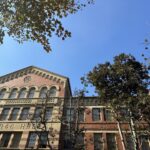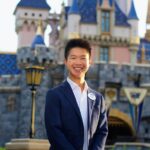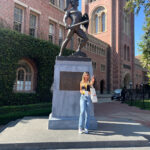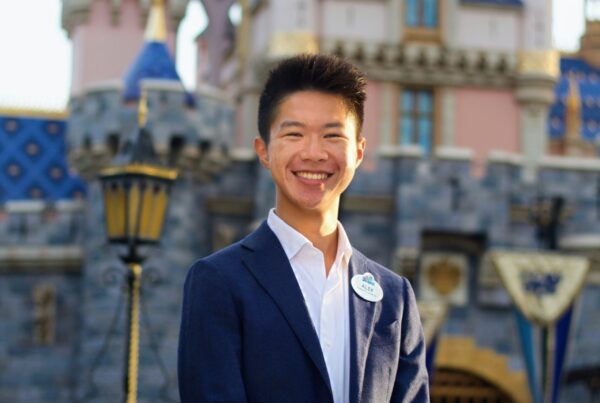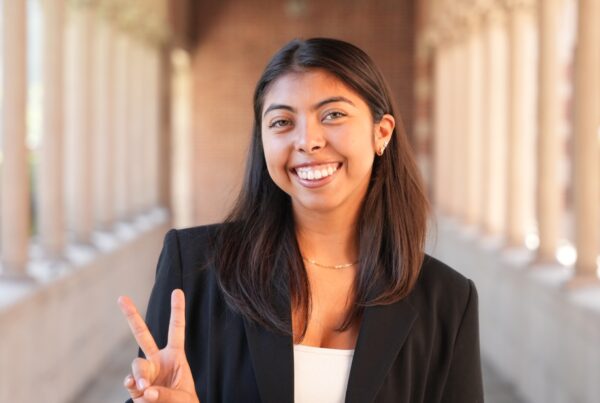While at USC, I’ve had the opportunity to be a member of a biomedical engineering research team, which I was matched with during the summer 2022 Viterbi Scholars Institute. Although my major is Industrial and Systems Engineering, I was able to apply what I learned during research in my classes and expand my knowledge beyond just my major!
To be honest, I didn’t really know anything about biomedical engineering before I was a member of this research team. But looking back, I’m so grateful I had to opportunity to help out with this research during the summer because I learned a lot about ultrasound waves and medical technology — things that I will definitely see in a future doctor check-up. The name of my research project was “Characterizing Tissue Stiffness Using Ultrasound Shear Wave Elastography”, and the focus was on harnessing high-intensity focused ultrasound waves in order to dismantle tumors, kidney stones, and blood clots while still ensuring the procedure remains safe and effective. I was placed into a team with another undergrad researcher and we were overseen by a biomedical engineering PhD student who was doing his thesis on this research!
I helped out on the team by fabricating different substances that mimicked human soft tissue, known as phantom. It’s made with varying concentration of distilled water, propanol, gelatin, and silica — and took me tons of trial and error to finally perfect it. I then created an experiment to capture and track the motion of concentrated ultrasound waves and determine how varying intensities affected the tissues of different ages and temperatures!

Although my personal project was a small piece of a much larger research project, I helped make steps towards using ultrasound shear wave elastography as a promising technique in treating certain medical conditions. Developing a better understanding of how soft tissue reacts to intense ultrasound waves will hopefully allow medical professionals to treat patients more effectively.
I think about the work that I did in this project every time myself or a family member goes to the doctor’s office, or when I go to my Human Factors in Work and Systems Design class – where a lot of what we learn focuses on patient safety! Biomedical engineers are doing important work. This was my first introduction to research in an academic setting and I appreciate how it taught me to be meticulous with details and reports. Plus, these were definitely useful skills later on in my physics labs!


